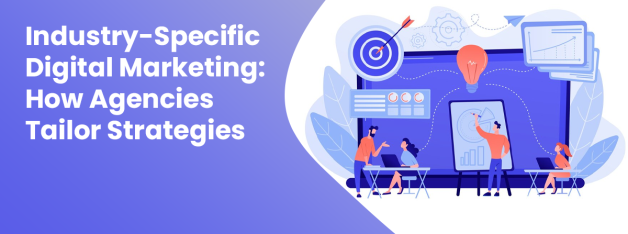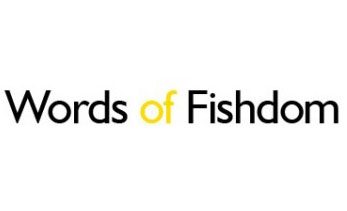Industry-specific digital marketing: How agencies fine-tune their strategies

In today’s competitive world, a one-size-fits-all approach to marketing will not cut it. Every industry has different issues, opportunities, and customer expectations. This is where the lightbulb of the digital marketing agencies shines brightly to provide tailored strategies to resonate with that market and attract a potential customer at the right juncture in time.
This blog discusses how agencies tailor their digital marketing services, with the emphasis on email marketing, content marketing, and PPC campaigns to engage with and influence various audiences.
Why Industry-Specific Strategies Matter
Imagine trying to sell winter coats in a tropical climate. Your efforts would probably not work because the needs of the audience do not match the product. Similarly, marketing strategies need to be designed according to the specific demands of an industry and its target audience.
Key Benefits of Tailored Strategies:
- Engagement is improved by addressing industry pain points.
- Conversion rates are higher through targeted messaging.
- Resources are used efficiently by focusing on what works for a niche market.
Example: A real estate agency used location-based PPC ads to drive leads, which led to a 40% increase in site traffic.
1. Understanding the Target Audience
The heart of any marketing strategy is an understanding of the audience. Agencies research in detail the behaviors, preferences, and challenges that may be unique to an industry.
How Agencies Learn About Their Audience:
- Conduct surveys and focus groups.
- Analyze website analytics and online behaviors.
- Monitor social media interactions for insights.
Pro Tip: Create in-depth buyer personas, taking into account job roles, interests, and buying behaviors.
2. Content Marketing for Engagement
Content marketing is the foundation of good communication. It helps brands establish authority while educating their audience. For content marketers, the goal is to create high-value materials that are relevant to industry-specific needs.
Content That Works:
- Informational blog posts that address pain points.
- Industry-specific case studies and whitepapers.
- Engaging videos and infographics.
Example: Email marketing. A cybersecurity company mailed weekly best practice cybersecurity blogs and led to a 25% jump in lead generation.
3. Creating Relationships Through Email Marketing
Even though it is one of the oldest digital channels, email marketing is extremely powerful for relationship building and conversion. Industry-specific campaigns rely on personalization.
Why It Works:
- Connects the audience directly through personalized messaging.
- Segments campaigns based on behaviors and preferences.
- Provides measurable results such as open and click-through rates.
Best Practice: Utilize the industry’s appropriate terminology and speak specifically to the challenges of that industry in order to establish trust and authority with your email.
4. PPC Campaigns for Measurable Results
For immediate visibility, PPC is the answer. Agencies can get brands in front of the right people based on industry-specific keywords, demographics, and so on.
PPC Do’s for Success:
- Use high-intent keywords specific to your industry.
- Retarget users who have interacted with the brand before.
- Track cost-per-click and ROI performance metrics.
Example: A healthcare provider used PPC ads to promote seasonal flu vaccines, increasing appointment bookings by 30%.
5. Social Media Strategy Tailoring
Social media is a powerful tool for reaching diverse audiences. However, strategies must be aligned with the preferences and behaviors of a specific market.
Best Practices for Social Media:
- Select platforms where the target audience is most active.
- Use industry-related hashtags to reach more people.
- Share success stories and testimonials to gain credibility.
Pro Tip: Analyze engagement metrics constantly to fine-tune your approach and maximize the impact.
6. Personalizing the User Experience
A seamless and intuitive user experience ensures that visitors stay longer and take desired actions. Agencies focus on optimizing websites and digital platforms for industry-specific audiences.
How to Enhance UX:
- Design mobile-friendly and fast-loading websites.
- Simplify navigation to assist the user in fast tracking the information sought
- Use visuals and layout that portray the industry.
Example: A travel agency redesigned its website with powerful imagery and easy-to-use booking features. The outcome was a 50% increase in conversions.
7. Utilization of Data in Making Decisions
Data is the foundation of customized marketing. Advanced analytics allow agencies to track performance, interpret audience behavior, and perfect strategies.
Data-Driven Insights
- Analyze campaign performance based on KPIs.
- Identify trends in engaging audiences.
- Try different content formats to see which one performs.
Pro Tip: Analyze regularly data reports not only to keep your strategies in track with the moving industry trends, but also those of your intended audience.
Questions About Industry Based Digital Marketing FAQs
Q. How does being tailored improve your ROI?
A. Tailor-made strategies with respect to special needs of that particular market work efficiently and offer better engagement/conversions.
Q. Is all content marketing workable for the industries?
A: Yes, if the information addresses audience pain points and brings actionable insights to the table.
Q: How can social media help niche industries?
A: Social media connects brands to their audience where they can easily engage directly with them, establish communities, and portray expertise.
Conclusion
In the ever-changing world of digital marketing, a customized approach is the way to success. Digital marketing strategies that are aligned with industry-specific needs create meaningful connections with potential customers, drive measurable results, and ensure long-term growth.
Whether it’s email marketing, PPC campaigns, or optimized content marketing, partnering with an agency that understands your industry can transform your digital presence. Ready to take your strategy to the next level? Start by focusing on what makes your audience unique.
Learn how digital marketing agencies customize content, email, and PPC strategies by industry to boost engagement, ROI, and conversions.
